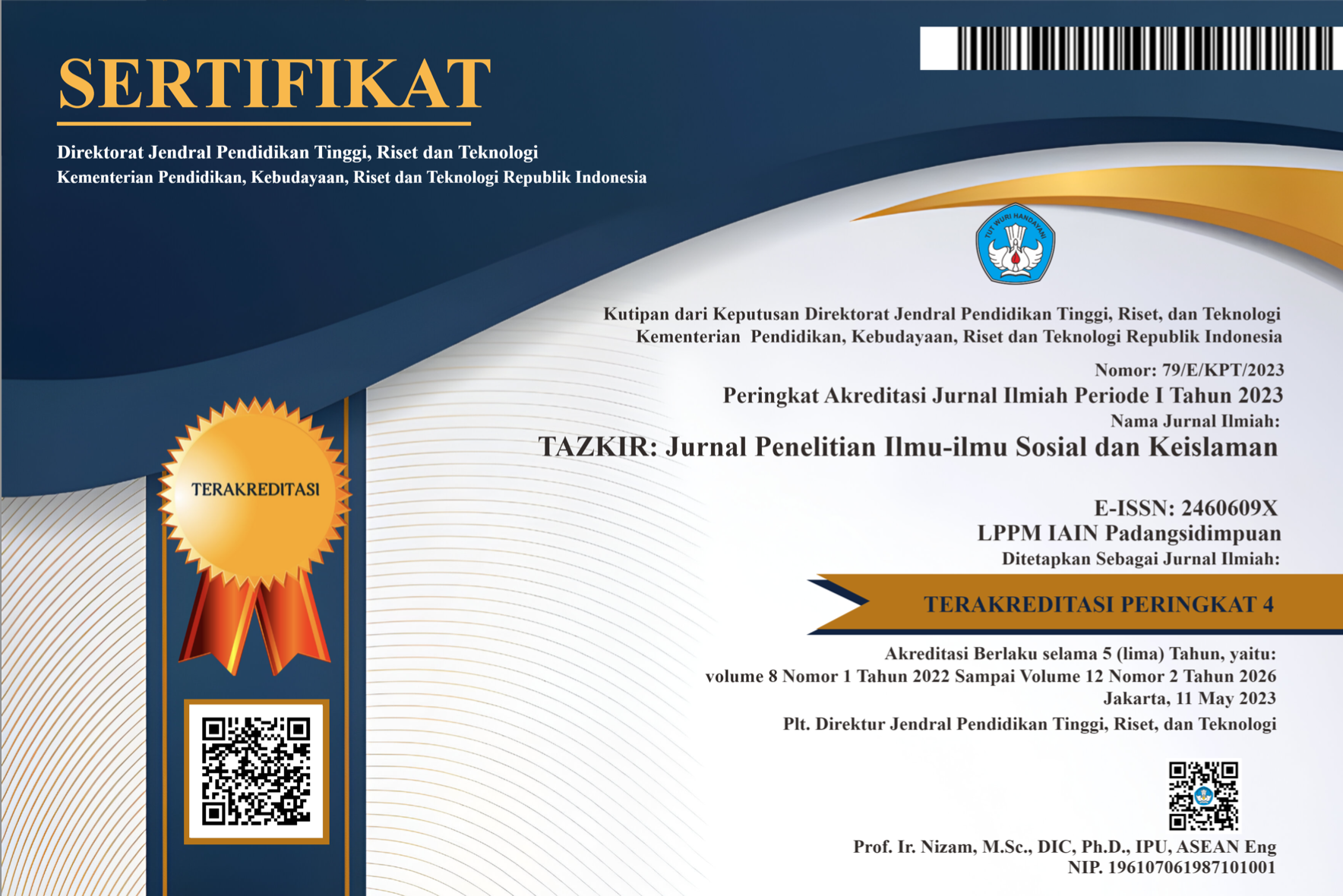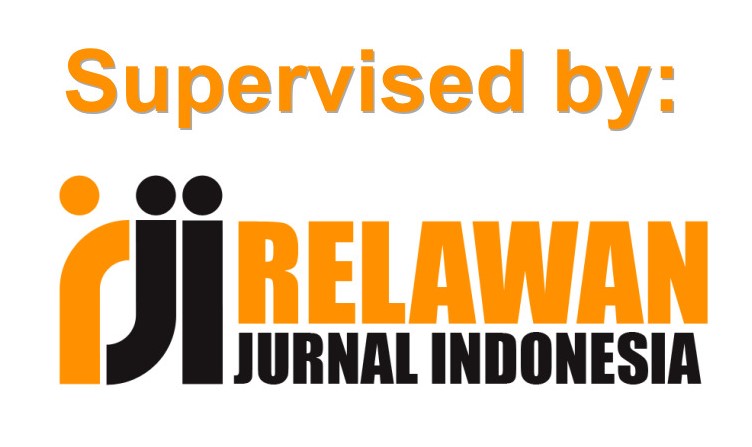Tafsir Tarbawi: Guru Menurut Pandangan Qs. Hud 11: 88
Abstract
Islamic education is conceptually an education that refers to clear and well-established foundations and resources. Experts say that the first source is the Koran in addition to other sources of the US-Sunnah, words of friends, the benefit of the people, traditions or customs of the society and the thought of the experts in the sphere of Islamic thought. Tafseer In this matter is domiciled as the explanatory of the first source. This article – using the method of interpretation Tarbawi, will attempt to elaborate the interpretation of the QS. Hud 11:88 to give the idea that teachers are not simple professions that can be done simply as well. There is a requirement of deep competence regarding acquired-perennial knowledge on him. These terms are being ruled out in a teacher's sincere nature. Its task and function are improvement (Ishla > h) By observing the Khair, Shawab and Mashlahah. In its overall context, the teacher's position is philosophically, as the prophet, and worthy to be examined in its relevance to contemporary conditions.
Keywords
Full Text:
PDF [Indonesia]References
Abou El-Fadl, K. M. (2001). The Search for Beauty in Islam: A Conference of the Books. University of America.
Al-Attas, S. M. N. (2011). Islam dan Sekularisme. PIMPIN.
Al-Baz, A. (2007). al-Tafsīr al-Tarbawi li Al-Qur’ān al-Karīm. Dar al-Nasyr li al-Jami’at.
Al-Ghazali, I. (1993). al-Mustashfâ. Dar Al-Kutub Al-’Ilmiyah.
Al-Maraghi, A. M. (1946). Tafsīr al-Marāghī, vol. 11. Maktabah Mushtafa Al-Halabi.
Al-Sya’rawi, M. M. (1991). Tafsīr al-Sya’rāwī. Akhbar Al-Yaum.
Al-Thufi, I. (1993). Risālah fī Ri’āyah al-Mashlahah (A. A. Al-Sayih (ed.)). Dar Al-Misriyah Al-Lubnaniyah.
Al-Zarkasyi, I. B. M. bin A. (2006). al-Burhān fī ‘Ulūm al-Qur’ān. Dar Al-Hadis.
Asari, H. (2017). Menguak Sejarah Mencari ’Ibrah: Risalah Sejarah Sosial-Intelektual Muslim Klasik. Perdana Publishing.
Ashraf, S. A., & Husain, S. S. (1986). Krisis Pendidikan Islam, Terj. Rahmani Astuti. Risalah.
Asy-Syaibani, O. M. T. (1979). Falsafah Pendidikan Islam. Bulan Bintang.
Asy’ari, H. (1994). Adāb al-‘Ālim wa al-Muta’allim. Maktabah Turats Islami.
Committe. (1977). First World Conference on Muslim Education. First World Conference on Muslim Education.
Dahlan, J. (2012). Puisi Syauqi dalam Patriotisme Mesir dan Kerukunan Umat Beragama. IAIN Surabaya.
Daud, W. (2003). Filsafat dan Praktik Pendidikan Islam Syed Muhamamd Naquib Al-Attas. Mizan.
Daud, W. (2017). Peranan Universiti: Pengislaman Ilmu Semasa, Penafibaratan dan Penafijajahan. Casis-Hakim.
Daud, W. (2019). Budaya Ilmu: Makna dan Manifestasi dalam Sejarah dan Masa Kini. Casis-Hakim.
Daulay, H. P. (2014). Pendidikan Islam dalam Perspektif Filsafat. Kencana.
Hammusy, M. A. R. (2007). Tafsīr al-Ma’mūn ‘alā Manhaj al-Tanzīl wa al-Shahīh al-Masnūn: Tafsīr al-Qur’ān al-Karīm ‘alā Minhāj al-Ashlain al-‘Āzhimain al-Wahyain –Alqur’ān wa al-Sunnah al-Shahāhah- ‘alā Fahmi al-Shahābah wa al-Tābi’īn. Makmun Hammusy.
Harahap, A. (2020). DARS NAQD: STRATEGI PENINGKATAN MUTU GURU DI PONDOK PESANTREN. Bahsun Ilmi, 1(1), 29–38.
Harahap, R. M. (2018). MUHAMMAD ALI PASHA: INOVASI PENDIDIKAN ISLAM. Idrak: Journal of Islamic Education, 1(1).
Harahap, R. M. (2019a). Etika Guru dalam Perspektif Sayyid Usman. Tapis: Jurnal Penelitian Ilmiah, 03(2), 208–228.
Harahap, R. M. (2019b). Narasi Pendidikan dari Tanah Betawi: Pemikiran Sayyid Usman tentang Etika Akademik. Journal of Contemporary Islam and Muslim Societies, 2(2), 174–199.
Harahap, R. M. (2019c). Pendidikan dan Peradaban dalam Narasi Sejarah Islam Klasik: Korelasi dan Koneksi. Idrak: Journal of Islamic Education, 2(1).
Harahap, R. M. (2020). Pembaruan Pendidikan Islam di Indonesia Abad Ke-19: Menelisik Serpihan Pemikiran Sayyid Usman. Islamijah: Journal of Islamic Social Sciences, 1(2), 199–218.
Jabal, M. H. H. (2010). al-Mu’jam al-Isytiqāq fi al-Muwasshal li Alfāzh al-Qur’ān al-Karīm. Maktab al-Adab.
Katsir, I. (1998). al-Tafsîr al-Qur’ân al-‘Azhîm, Vol. 4. Dar Al-Kutub Al-’Ilmiyah.
Khamsin, H. A. (n.d.). Muqaddimah fi al-Tafsīr al-Tarbawī: al-Usūl al-Tafsīriyah (A. A. al-H. Rahif (ed.)). Narjes Library.
Langgulung, H. (1992). Asas-Asas Pendidikan Islam. Pustaka Al-Husna.
Manzur, I. (n.d.). Lisān al-‘Arab. Dar Al-Ma’arif.
Mustaqim, M. A. (2019). Argumentasi Keniscayaan Tafsir Maqasidi sebagai basis moderasi islam. Pidato pengukuhan Guru Besar dalam bidang Ulumul Qur’an. Yogyakarta: UIN Sunan Kalijaga.
Rasyidin. (2020). Peningkatan Kompetensi Guru: Studi Implementasi Kebijakan di Pesantren. Rawda Publishing.
Rasyidin, A. (2008). Falsafah Pendidikan Islami; Membangun Kerangka Ontologi, Epistemologi dan Aksiologi Praktik Pendidikan Islami. Citapustaka Media Perintis.
Ritonga, A. S. (2018). Pendidikan Akhlak Dalam Perspektif Hamka (Studi QS Luqman Dalam Tafsir Al-Azhar). Universitas Islam Negeri Sumatera Utara Meddan.
Ritonga, A. S. (2019). ALQURAN, TAFSIR DAN FENOMENA SOSIAL KEMASYARAKATAN. Al-I’jaz: Jurnal Kewahyuan Islam, 5(2).
Sharif, M. M. (1963). Philosophical Teachings of the Qur’an. In M. M. Sharif (Ed.), A History of Muslim Philosophy. Otto Harrassowitz.
Syauqi, A. (1988). al-A’māl al-Syi’riyah al-Kāmilah. Darul Audah.
Toguan, M. (2019). KARAKTERISTIK PENDIDIK MENURUT QS. MARYAM: 12-15. Idrak: Journal of Islamic Education, 1(02).
Wensick, A. J. (1936). Mu’jam Mufahras lī Alfa’z al-Hadīs al-Nabawī. Brill.
DOI: https://doi.org/10.24952/tazkir.v6i1.2494
Refbacks
- There are currently no refbacks.
Copyright (c) 2020 TAZKIR: Jurnal Penelitian Ilmu-ilmu Sosial dan Keislaman

This work is licensed under a Creative Commons Attribution-ShareAlike 4.0 International License.






